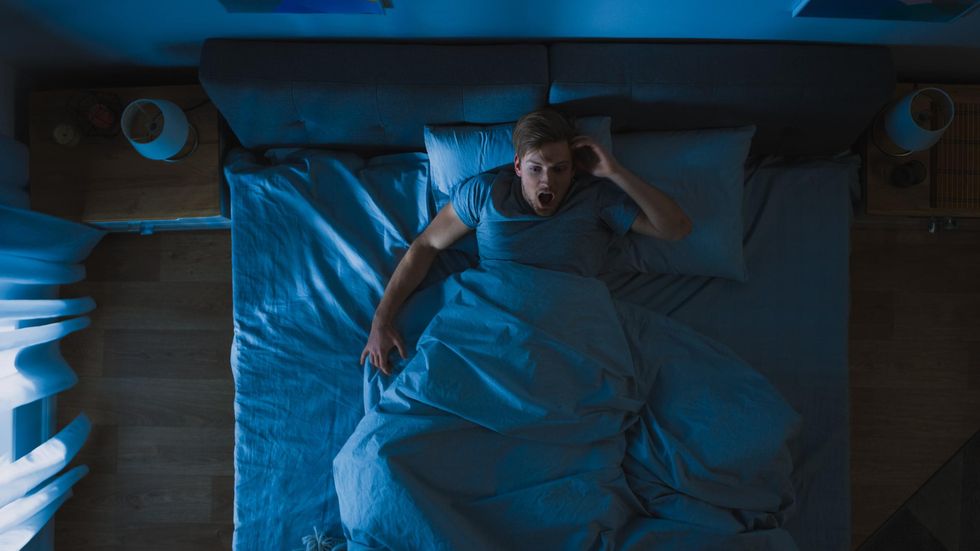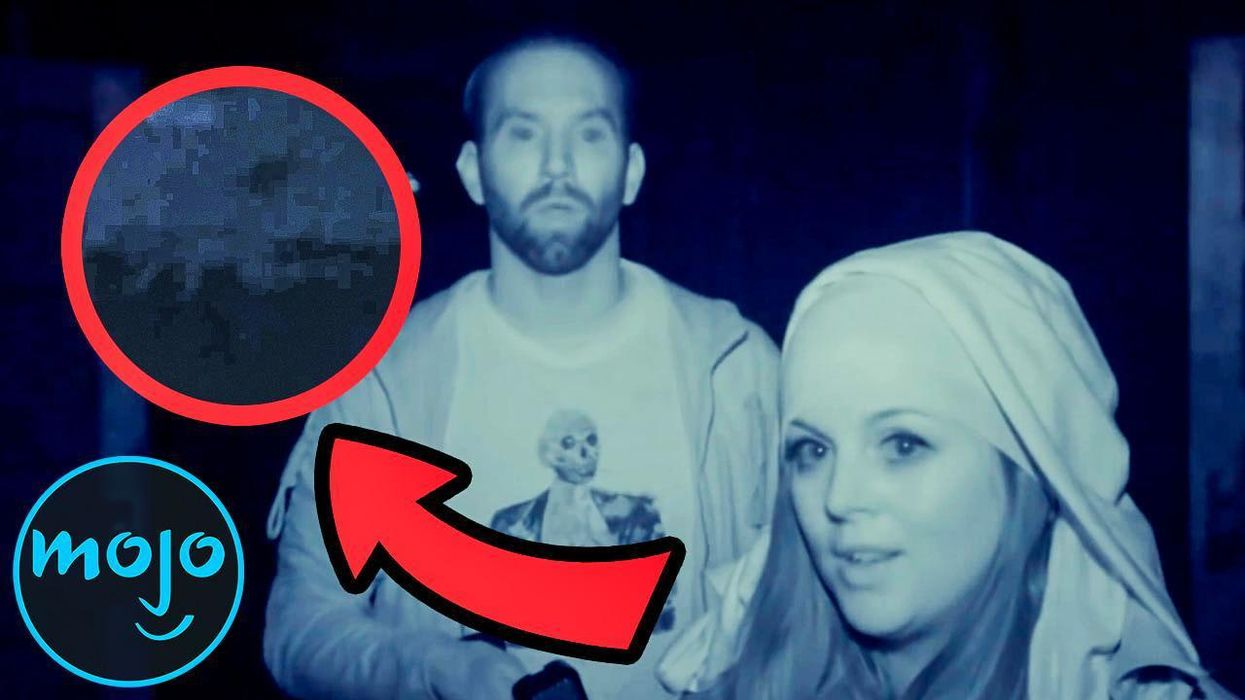Sinead Butler
Jan 20, 2023
Top 10 Actually Scary Moments from Paranormal Investigation Shows
content.jwplatform.com
When night time falls, the dark and quiet can spook us out and so it's the perfect environment for us to question if there's any paranormal activity going on.
It's also the time of day where most of us go to sleep, and it turns out there is fascinating connection between the amount of shut-eye we get and paranormal beliefs.
The study conducted at Goldsmiths University of London and published in theJournal of Sleep Research conducted an online survey, with participation encouraged via social media and by BBC Science Focus Magazine.
Sign up to our free Indy100 weekly newsletter
As a result of 8,853 participants who were over 18, provided answers to questions about their paranormal beliefs and sleep patterns.
Research found that poorer subjective sleep quality measures were linked with stronger beliefs in the paranormal - ranging from the soul living on after death; the existence of ghosts; demons; an ability for some people to communicate with the dead; near-death experiences are evidence for life after death; and aliens have visited Earth.
The poorer sleep quality included lower sleep efficiency, longer sleep latency, shorter sleep duration and increased insomnia symptoms.
"To the best of our knowledge, this is a novel finding worthy of further examination," the researchers wrote.
Meanwhile, the belief that aliens have popped to Earth for a visit are associated with isolated sleep paralysis and exploding head syndrome - a type of sleep disorder where a person can heara loud noise or explosive crashing sound in their head.
The belief that near-death experiences are evidence of some kind of afterlife was associated with isolated sleep paralysis (with other symptoms such as narcolepsy) - a condition where a person is unable to move or speak right as you're falling asleep or waking up.
Those who reported isolated sleep paralysis also had significantly more spiritual beliefs (e.g. endorsing the belief that the mind and soul can leave the body and travel) than those without.

"For all associations, it was found that a higher level of paranormal belief was associated with a poorer subjective sleep quality, even when controlling for age and gender effects," the researchers added.
There are still questions marks over why sleep and the paranormal are linked, which would require further investigation.
But some theories have been provided by researchers who suggest that a belief in aliens could be due to the visual and auditory hallucinations caused by sleep paralysis and loud noise from exploding head syndrome.
"One explanation for these associations is therefore that someone experiencing sounds or images associated with sleep could interpret this as evidence that aliens or other supernatural beings exist," they noted.
However, researchers also suggested the links could be the other way round and that anxiety about the paranormal can cause sleep to be disturbed - perhaps this is the reason those with a poorer sleep quality are more likely to have stronger beliefs in the paranormal.
Though more study would be needed to delve into where exactly the anxiety comes from - ghost, demons, aliens, or less frightful and more philosophical matters such as the afterlife.
Other factors such as religion, mental health, education and personality would also need to be considered as those can also affect paranormal beliefs too.
Another reason given for this subject matter to be further explored is while a large sample size took part in the study, researchers acknowledge the participant joined themselves and so "unlikely to be representative of the general population."
"For example, the seemingly high rates of [isolated sleep paralysis] and [exploding head syndrome] could indicate that individuals with these symptoms were more likely than others to be interested in taking part in this study," they explained.
Although there is more research needed to develop a further understanding of the link between sleep and paranormal beliefs, it is hoped this will raise awareness for health professionals "to assess for relevant sleep disturbances and parasomnias in addition to other forms of psychopathology," with their patients.
"Reports of paranormal activity or anomalous beliefs could be mistaken as prima facie evidence for more severe disorders," they said.
Have your say in our news democracy. Click the upvote icon at the top of the page to help raise this article through the indy100 rankings.
Top 100
The Conversation (0)














